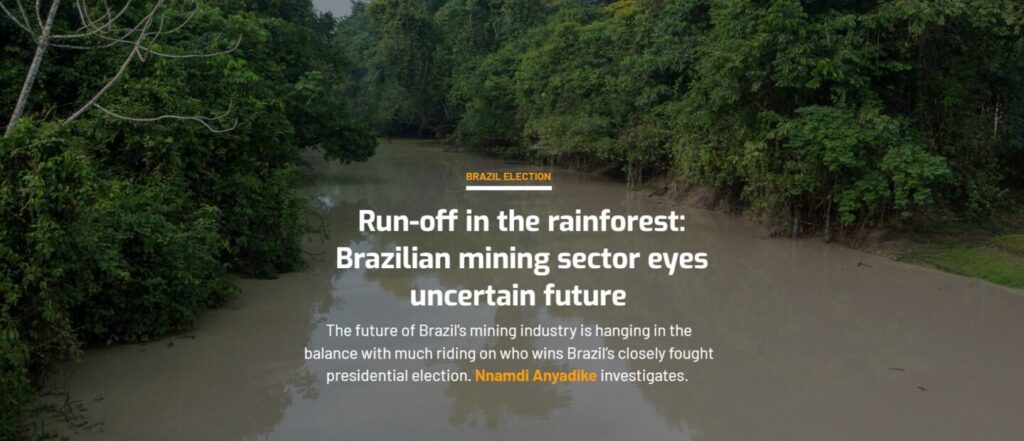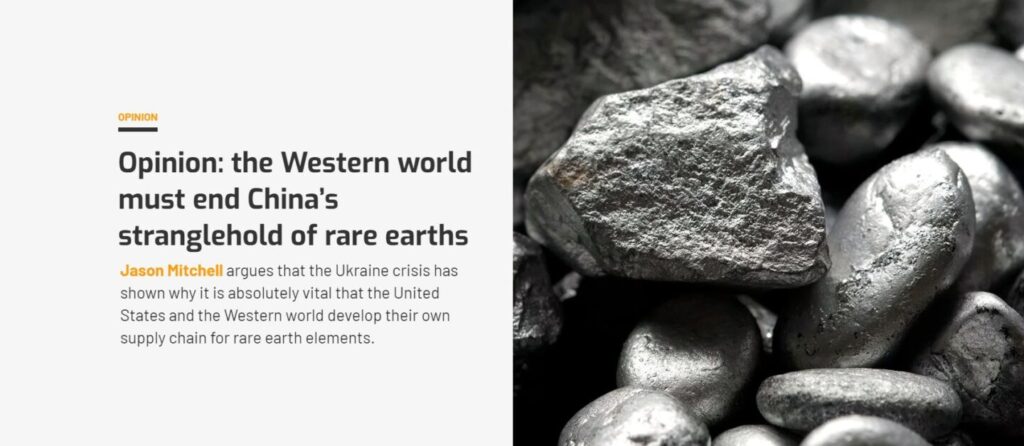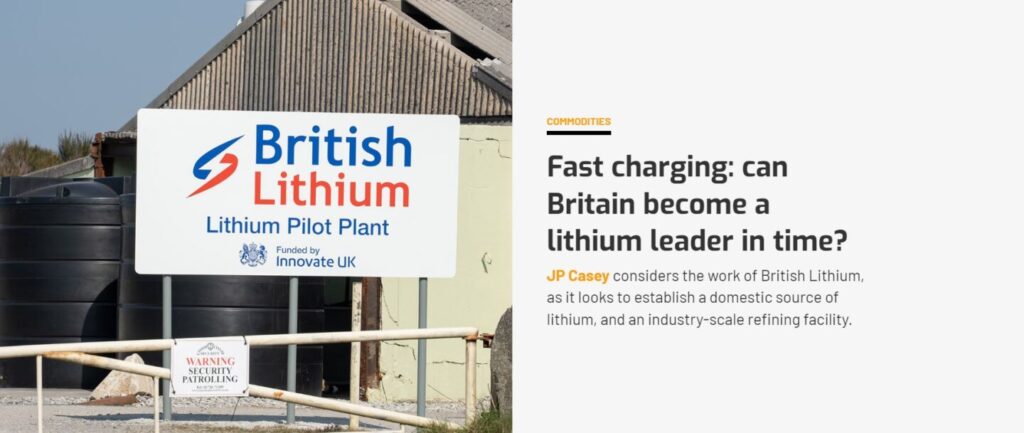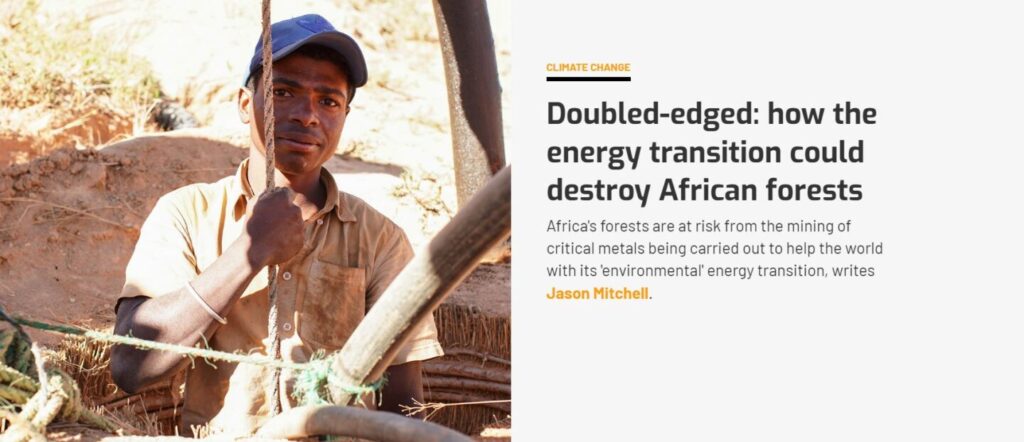
Brazil’s election of veteran politician Luiz Inácio Lula da Silva in this weekend’s critical runoff is a strong stand against the policies of his predecessor, the right-wing Jair Bolsonaro, and could have major impacts for the future of Brazilian mining. With much of Bolsonaro’s platform aimed at expanding Brazilian industry, up to and including mining in the Amazon Rainforest, there is hope that the election of Lula could bring an element of environmental responsibility to the national interest, albeit one that comes with concerns about maximising profit.
Beyond the two candidates, there is also the prospect of their personalities and policies trickling down into broader Brazilian politics. With the country’s Congress more right-leaning than its new president, the election is hardly going to be the end of discussions about the future of mining in Brazil, and as all countries begin to push harder for a strong source of domestic minerals, the election could prove to be just the beginning of a new generation of Brazilian mining.
Elsewhere, we ask what the Western world can, and perhaps should, be doing to reduce its reliance on Chinese rare earth mines, and investigate a legal claim in Mozambique that is pitting a private company against the national government, with the world looking on to see how the dispute is settled, and what this could mean for future mining lawsuits.
Whether you are on a desktop, tablet or smartphone, you can read the magazine for free online, and join the conversation on Twitter.
In this issue
Run-off in the rainforest: Brazilian mining sector eyes uncertain future
The future of Brazil’s mining industry is hanging in the balance with much riding on who wins Brazil’s closely fought presidential election. Nnamdi Anyadike investigates.

US Tariffs are shifting - will you react or anticipate?
Don’t let policy changes catch you off guard. Stay proactive with real-time data and expert analysis.
By GlobalData
Opinion: the Western world must end China’s stranglehold of rare earths
Jason Mitchell argues that the Ukraine crisis has shown why it is absolutely vital that the United States and the Western world develop their own supply chain for rare earth elements.

Fast charging: can Britain become a lithium leader in time?
JP Casey considers the work of British Lithium, as it looks to establish a domestic source of lithium, and an industry-scale refining facility.

Doubled-edged: how the energy transition could destroy African forests
Africa’s forests are at risk from the mining of critical metals being carried out to help the world with its ‘environmental’ energy transition, writes Jason Mitchell.

Take it back: inside Pathfinder and AAG’s claim against Mozambique
Giles Crosse investigates the loss of a Pathfinder Minerals mining claim in Mozambique, and asks what the dispute could mean for the future of mining in the country.

Next issue: climate change
As is the case with many heavy industries, mining is a key contributor to the world’s struggling climate. Optimising operations and offsetting emissions, however, can only go so far, and there is a genuine concern that the world will, ultimately, have to choose between mineral excavation and protecting its environment in the long-term. What conclusion is most likely for the world’s decision-makers?


